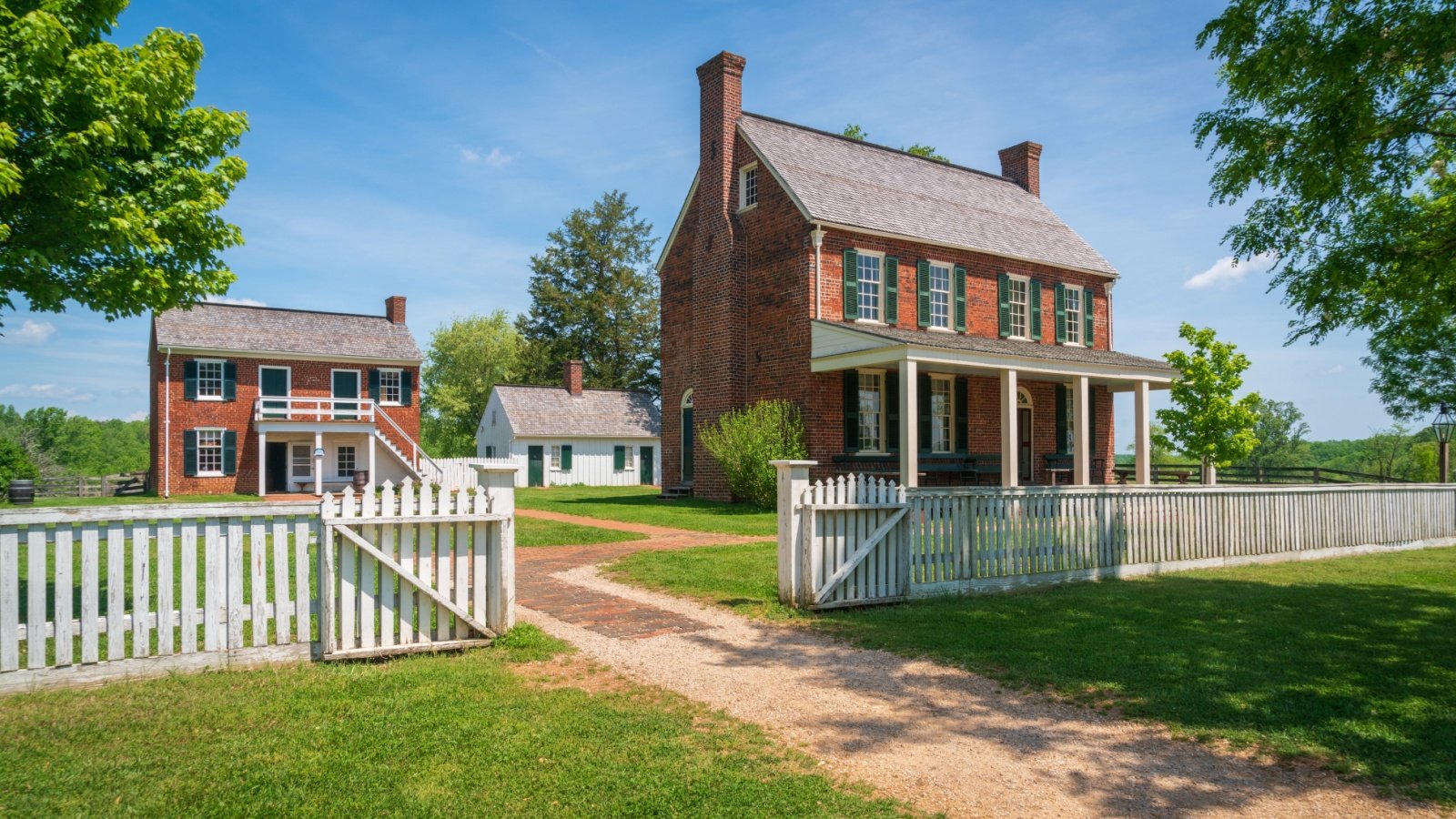Across the United States, squatters can claim rights to property through a legal concept known as adverse possession.
This principle allows people to acquire ownership of land after meeting certain conditions, including continuous and open use of the property for a number of years, which varies by state. However, it often leads to confusion for those not familiar with the details of the law.
Let’s look at these laws in detail so you can better protect your assets and prevent property loss.
Rights Overview

Squatter’s rights, or adverse possession, allow a person to claim ownership of a property after occupying it for a certain period without the owner’s permission. This legal concept has roots in ancient times, intended to encourage the productive use of land. Each state has different laws, but typically, the squatter must openly inhabit and improve the property for five to thirty years.
New York

In New York, squatters must continuously occupy a property for at least ten years. The law stipulates that the occupation must be notorious, exclusive, and against the rightful owner’s interests. These strict requirements aim to prevent frivolous claims yet often lead to complicated legal battles.
California

California requires a squatter to possess a property openly and notoriously for five years, along with paying taxes on the property. This additional tax payment requirement is unique to California and a few other states. The state’s approach balances property rights with the reality of housing shortages and unused spaces.
Texas

Texas law emphasizes the visible, continuous, and exclusive occupation of a property for a period of ten years. Squatters must also cultivate, use, or improve the property. These stipulations are designed to ensure that only those truly invested in the property’s upkeep gain possession rights.
Florida

Florida mandates a seven-year period of continuous occupation for squatters to claim adverse possession. During this period, the squatter must also pay property taxes. Plus, they must have a color of title, which is a document appearing to convey ownership but is legally ineffective. This combination of requirements reflects Florida’s effort to protect property owners.
Illinois

Illinois sets a high bar for squatters by requiring 20 years of continuous possession and payment of property taxes. This lengthy period is one of the longest in the U.S. Illinois’ approach aims to discourage squatting while ensuring the legal owner has ample time to reclaim their property.
Pennsylvania

In Pennsylvania, the requirement is 21 years of continuous, notorious, and exclusive possession. The state also insists that the possession is hostile, meaning without the owner’s permission. This long period and the necessity of hostility create a challenging environment for squatters to successfully claim adverse possession.
Ohio

Ohio requires squatters to occupy a property for 21 years to claim adverse possession. The law insists on continuous, exclusive, and open use of the property without permission from the owner. This extensive period is designed to protect property owners.
Michigan

In Michigan, squatters can claim adverse possession after 15 years of continuous occupation. The law requires that the possession be visible to the public, ensuring that the property owner has the opportunity to dispute the claim if desired. Michigan’s approach reflects a balance between protecting ownership rights and recognizing the potential benefits of reclaiming unused land.
Georgia

Georgia mandates a 20-year period for adverse possession claims, one of the longer time frames in the country. This duration ensures that squatters significantly invest in the property. The state’s laws are particularly strict regarding the need for clear and hostile possession.
Nevada

In Nevada, a squatter must possess the property for 15 years. They must also pay property taxes during that time to qualify for adverse possession. This combination of requirements makes Nevada one of the tougher states for squatters.
Washington State

Washington requires a continuous occupation period of 10 years for adverse possession claims. The occupation must be open and notorious. This timeframe is intended to prevent misuse of the law while allowing for the rehabilitation of neglected spaces.
Colorado

Colorado demands an 18-year period of adverse possession. Squatters must also make improvements to the property, signifying a genuine commitment to the upkeep and enhancement of the land.
Arizona

Arizona allows squatters to claim adverse possession after a period of 10 years. The state requires that the possession be hostile, actual, and exclusive. Arizona’s laws are designed to resolve situations where land might otherwise remain vacant and unattended.
Minnesota

Minnesota requires a 15-year period of adverse possession. The state also requires the payment of property taxes throughout that time. These stringent requirements are aimed at ensuring that squatters contribute to the state’s economy and take responsibility for the land they occupy.
Maryland

In Maryland, squatters must occupy the property continuously for 20 years to claim adverse possession. This long period, coupled with the requirement that the occupation be open and notorious, ensures that property claims are well substantiated. Maryland’s approach is designed to prevent misunderstandings and protect rightful property owners.
Virginia

In Virginia, squatters must occupy a property for 15 years to claim adverse possession. The state requires that the possession be open, continuous, and exclusive, with a clear intent to take ownership as evidenced by the squatter’s actions. Virginia’s laws aim to balance the interests of property owners with those who might put abandoned property to good use.
Rhode Island

In Rhode Island, a squatter must occupy a property continuously for 10 years to assert adverse possession. This standard requires that the occupation be open and notorious to the public, making it evident that the squatter has taken possession. Rhode Island’s relatively shorter period reflects its intention to resolve property disputes swiftly and efficiently.
Connecticut

Connecticut mandates a continuous, exclusive, and open occupation of a property by a squatter for 15 years. This extended period ensures that only those genuinely committed to the property can claim ownership, thereby reducing frivolous claims. The state’s laws aim to protect both the property owner’s interests and the potential benefits of productive land use.
Oregon

Oregon requires a squatter to possess a property for 10 years, and the possession must be continuous, exclusive, and hostile. Oregon’s laws reflect a balanced approach, recognizing both the rights of the original owners and the potential benefits of new ownership.
Kentucky

Kentucky distinguishes itself by requiring only 7 years of adverse possession if the squatter has color of title and pays property taxes during this period. This requirement not only encourages the productive use of property but also ensures that squatters contribute financially to the local economy.









Wenn Sie im VerdeCasino 50 Freispiele für den Slot Book
of Sirens erhalten, können Sie sich also auf jede Menge Spielspaß an diesem Automaten freuen. Jetzt müssen Sie nur noch den Slot “Book of Sirens” von Spinomenal
auswählen und starten, um die Verde Casino Freispiele
ohne Einzahlungsbonus nutzen zu können. Um möglichst effizient
spielen zu können, kann es sich lohnen, mit dem Bonusguthaben aus den Promo
Codes an Turnieren oder anderen Events teilzunehmen. Derzeit bieten wir verschiedene Boni
mit Promo Codes, bei denen unsere Nutzer nach der Aktivierung Prämien wie Bonusguthaben oder Freispiele erhalten können. Sollten Sie im Verde Casino
25 Euro Startguthaben einsetzen oder mit einem anderen Bonus spielen,
dann empfehlen wir zunächst, die Liste der ausgeschlossenen Titel zurate zu ziehen. Die Umsatzbedingung für den Guthabenbonus beträgt
x40, die der Freispiele hingegen nur x30.
Und dürfen sich auch Bestandskunden hin und wieder über attraktive Reloadboni freuen? In unserem heutigen Casino Bonus Test beschäftigen wir uns mit dem brandneuen Verde Casino
Bonus Code, das seinen neuen Kundinnen und Kunden einen überraschend
hohen Willkommensbonus anbietet. Da der kostenlose Bonus keine Einzahlung voraussetzt, können Sie die VerdeCasino Freispiele ohne finanzielles Risiko in Empfang nehmen und
vollkommen kostenlos verwenden. Wie üblich für diese Art von Online
Slots erhält der Nutzer nach der Auslösung
des Bonus-Spiels ein zufälliges Symbol, welches sich im Rahmen der Freispiele ausklappt.
Um das Bonus-Feature des Spiels auslösen zu können, müssen Sie innerhalb einer Umdrehung
mindestens drei Scatter-Symbole erhalten. Die Verde
Casino 50 Freispiele werden Ihnen also vollkommen kostenfrei gutgeschrieben.
Für die zweite und vierte Bonusstufe ist eine Mindesteinzahlung von 15 Euro erforderlich.
Verde Casino Promo Codes haben unterschiedliche Mindesteinzahlungsanforderungen, die erfüllt
werden müssen, um den jeweiligen Bonus zu aktivieren. Verde Casino Promo Codes haben definierte maximale Bonusbeträge,
die die Höchstsumme begrenzen, die Sie als Bonus erhalten können. Ein separater Verde Casino Promo Code “VERDEFORTYFIVE” bietet einen Festbetrag von 45 Euro bei einer
Mindesteinzahlung von 20 Euro.
References:
https://online-spielhallen.de/hitnspin-freispiele-250-gratis-50-ohne-einzahlung/
Players can log in, claim bonuses, deposit, and withdraw directly from any smartphone or tablet, with consistent performance across both Android and iOS.
Ozwin Casino publishes these metrics to support transparent
decision-making and to allow players to choose based on facts,
not guesswork. Ozwin promotes responsible gaming through customizable deposit limits, voluntary self-exclusion tools, and 24/7 customer support for
player control and guidance. These measures are applied to every account equally, ensuring that player protection is active from the first sign-up through every deposit and withdrawal.
Many pokies and specialty games support practice mode once you’re
logged in, letting you test things out risk-free. The casino support service operates 24/7.
Moving money at Ozwin Casino feels about as complicated as ordering a flat white — quick, familiar, and built for
local players. Beyond pokies, there’s a tidy selection of table favourites like blackjack,
baccarat, and roulette, plus video poker variations for players who love strategy.
New players can snag generous match offers and free spins, while weekly promos keep existing members spinning.
Players must be 18 years of age to have an account at Ozwin. Instant play is available on both
Android and IOS devices. Instant play is available on all
browsers for desktop users. It is absolutely safe to play at Ozwin Casino, as we use the latest
technologies to ensure your safety and privacy. A FREE bonus every Sunday
References:
https://blackcoin.co/instant-withdrawal-casinos-australia-15-fast-payout-casino-sites/
The casino actively accepts players from the Australia Skycrown Casino provides
players in Australia with fast and secure ways to deposit and withdraw funds.
Discover the exclusive Skycrown Casino bonus, designed to give new players a strong start.
Choose whatever suits your current mood and enjoy not just the thrilling atmosphere of games,
but also real money winnings!
You’ve just landed at Sky Crown, where Aussie gaming hits a whole
new level. Cryptocurrency withdrawals are usually processed within an hour.
SkyCrown Casino supports various payment methods including credit/debit cards, e-wallets (PayPal, Skrill, Neteller), bank transfers, and cryptocurrency options (Bitcoin,
Ethereum). Simply visit our website on your mobile device and follow the download instructions.
Our verification process is designed to be secure yet efficient, maintaining compliance with
Australian regulations while providing a seamless user experience.
The iOS app, safe and legal in Australia, offers unrestricted
access to all its features.
References:
https://blackcoin.co/the-star-gold-coast-ultimate-casino-guide/
online australian casino paypal
References:
https://cloudwapi.site/
online slots uk paypal
References:
http://damoa8949.com/bbs/board.php?bo_table=free&wr_id=35928